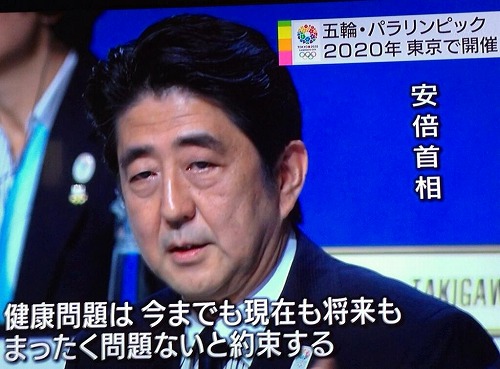
福島原発事故による健康被害情報に関しては、日本政府・官僚・電力会社・メーカー・御用学者・御用マスコミによる隠ぺい工作が功を奏し、実態が良く判らない状態になっています。原発マフィアたちが巣食う利権はとても大きなものであることが解ります。
このような隠ぺい工作は日本特有のものではありません。日本以上に原発マフィアの力が強大なアメリカでも、福島原発事故による被害状況はまともに報道されていません。この問題を報じている記事を見つけましたので紹介いたします。
naturalnewsというサイトの2015年4月14日付記事のリンクを以下に貼ります。
上記リンク英文記事の一部を以下に引用します。( )内は私の日本語訳です。参考にしてください。
スポンサーリンク
「Just how bad was the radiation fallout from the near-complete destruction of three nuclear reactors at the Fukushima power station following a massive earthquake-generated tsunami in March 2011? The answer is, most people simply don’t know – because the media coverage of the damage and fallout, at the time of the accident and in the four years since, has been grossly inadequate, according to a new study.」
(2011年の大地震・大津波の後、福島原発で3つの原子炉が大破したが、放出された放射性物質はどの位なのだろうか?ほとんどの人はその質問に答えることができない。なぜなら、事故から4年の間、被害状況の報道が極めて不適切だったからだ。このことが最新の研究で明らかになった。)
「As noted by American University sociology Prof. Celine Marie Pascale, there has especially been a dearth of U.S. media coverage, the disaster long disappearing from the headlines of domestic newspapers and cable news networks, despite the fact that the crippled plant dumps three hundred tons of radioactive water into the ocean daily, and the region surrounding the plant remains uninhabitable – probably forever.」
(アメリカの大学で社会学の教授をしているCeline Marie Pascaleが論文で書いているように、アメリカのメディアが報道していないことが大きな原因である。アメリカ国内の新聞やケーブルニュースネットワークの見出しに原発事故の文字が見られなくなって久しい。実際には、壊滅した福島原発からは毎日300トンの汚染水が海に流れ込んでおり、周辺地域は恐らく永遠に居住不可能な状態なのである。)
「Further, her new analysis found that U.S. news media coverage of Fukushima “largely minimized health risks to the general population,” says a press release from the university.」
(アメリカのニュースメディアが福島原発事故を報道する時、日本国民の健康リスクを過小評価していることが、彼女が公表した最新分析で明らかになった。)
「Pascale analyzed more than 2,000 news articles from four major U.S. outlets following the disaster’s occurrence March 11, 2011 through the second anniversary on March 11, 2013. Only 6 percent of the coverage – 129 articles – focused on health risks to the public in Japan or elsewhere. Human risks were framed, instead, in terms of workers in the disabled nuclear plant.」
(アメリカの4大報道機関が出した2000以上の記事をPascaleは分析した。これらは、2011年3月の原発事故発生から2年の間に発行されたものである。日本国民他の健康リスクに焦点を当てていたのは、全体の6%:129記事だけであった。健康へのリスクは、事故原発で働く作業員だけに限定して論じられていた。)
「”We see articles in prestigious news outlets claiming that radioactivity from cosmic rays and rocks is more dangerous than the radiation emanating from the collapsing Fukushima Daiichi nuclear plant,” she added.」
(崩壊した福島第一原発よりも宇宙線や岩石から出る放射能の方が危険だ、という主張を高級紙が繰り広げていますね、と彼女は付け加えた。)
「The sociology prof examined news articles, editorials and letters from two major U.S. papers – The New York Times and The Washington Post – and two additional, prominent online news sites – Politico and The Huffington Post. The four outlets are not only among the largest, most influential in the U.S., they are also the most-cited by television news and talk shows, as well as other newspapers and blogs. Also, they are talked up in social media often, says Pascale. So, in that sense, she says, seeing how risk is presented in national prominent media can provide data on how the issue is framed nationally, in public conversations.」
(その社会学者が調べたのは、ニュース記事・社説・手紙である。情報源は、アメリカ2大紙であるニューヨークタイムズとワシントンポスト、そして、影響力が大きいオンラインニュースサイトのPolitico とThe Huffington Postを活用した。それら4つの報道機関は規模や影響力がトップレベルというだけでなく、テレビ・トークショウ・他新聞やブログでの引用頻度も高い。また、ソーシャルメディアで話題になることも多い。つまり、影響力のあるメディアで健康リスクがどのように表現されているか調べれば、アメリカ国民の問題意識が解るのです。以上は、Pascaleの意見だ。)
「Pascale’s analysis identified three primary ways in which the news outlets minimized the risk posed by radioactive contamination to the general population. Articles made comparisons to mundane, low-level forms of radiation; defined the risks as unknowable, given the lack of long-term studies; and largely excluded concerns expressed by experts and residents who challenged the dominant narrative.」
(放射能汚染による健康被害を過小評価するためにニュースメディアが用いている方法は主に3種類あるということをPascaleは突き止めた。通常の低レベル放射線と比較する。長期間の研究結果が無い為、健康リスクは不明だと結論付ける。そして、常識に疑問を持つ専門家や住民の声をほとんど排除してしまう。この3つだ。)
「The results, she says, demonstrates that corporations and government agencies provided disproportionate information and data regarding the impact of the disaster – on the environment, the long-term effects of massive radiation contamination (which are well-known), the oceanic ecosystems, the migration of the radiation globally, and on the exposed human populations.」
(企業や政府機関は、福島原発事故の影響に関して実態と異なる情報やデータを提供してきたということを、彼女の研究結果は示している。自然環境、大規模な放射能汚染による長期的影響、海洋生態系、放射性物質の地球規模の移動、被爆した人々など、被害事実が歪曲・隠ぺいされた分野は数多い。)
「”Even years after the disaster,” the university press release said, “government and corporate spokespersons constituted the majority of voices Drafted. News accounts about local impact – for example, parents organizing to protect their children from radiation in school lunches – were also scarce.”」
(福島原発事故から何年も経っているのに、世の中の意見の大部分は政府と企業の立場が反映されている。例えば、放射性物質にまみれた学校給食を子供に食べさせまいと運動している親たちが地方にいるが、そういった事実の報道が全く不十分だ。)
「The professor believes her findings reveal the need for the general public to be much more critical consumers of news. She notes that expert knowledge can be employed to generate misinformation, propaganda and uncertainty, especially in information vacuums created after disasters.」
(国民は報道内容をもっと批判的に受け止める必要がある、ということが彼女の研究から判る。福島原発事故後の情報空白や、誤報・政治的扇動・不明確さなどを生み出すために悪知恵が使われている可能性がある、というのが彼女の見解だ。)
「”The mainstream media – in print and online – did little to report on health risks to the general population or to challenge the narratives of public officials and their experts,” Pascale said.」
(紙媒体であれオンラインであれ主流メディアは、国民の健康リスクについて殆ど報道していない。政府や識者の意見を監視・批判するという仕事を疎かにしている。)
「”How knowledge about disasters is reported can have more to do with relations of power than it does with the material consequences to people’s lives,” she concluded.」
(報道内容は、人々の生活・命が受けた被害を反映しておらず、権力者の意向に左右されている。これが彼女の結論だ。)
以上